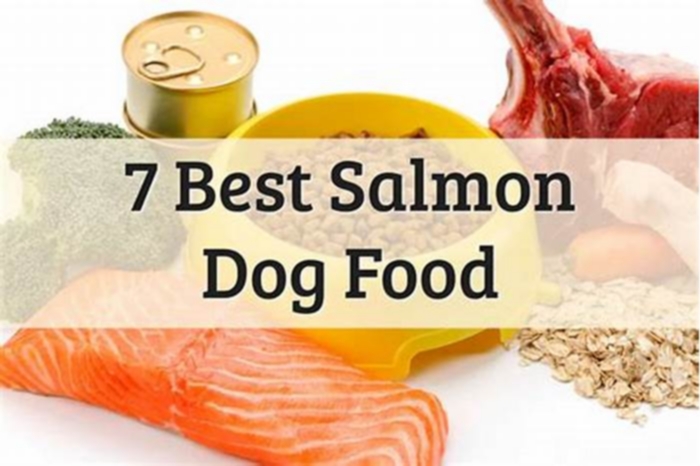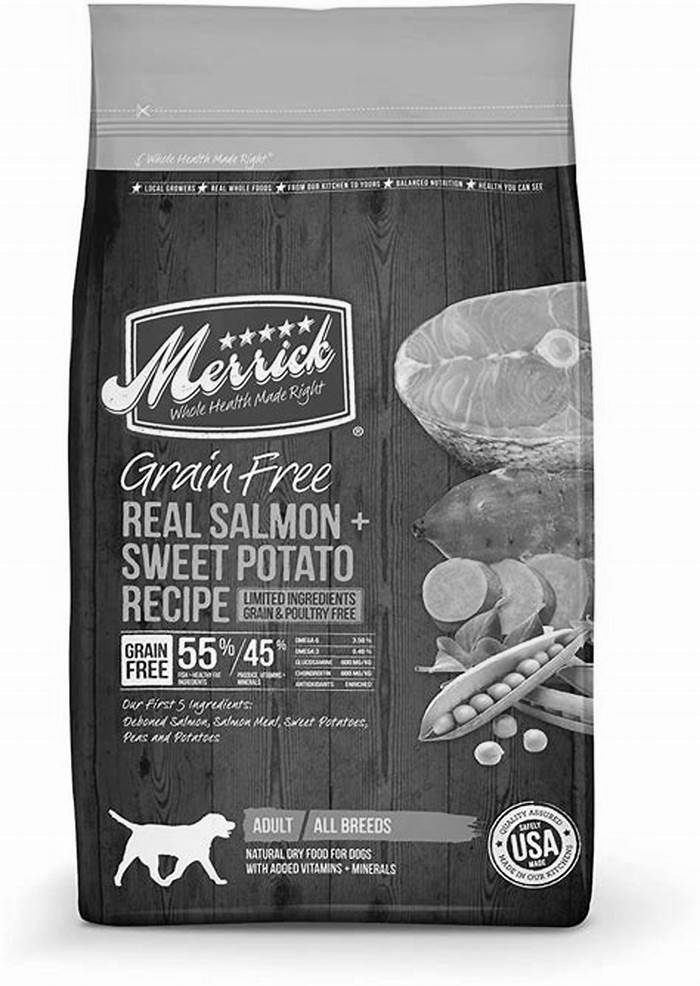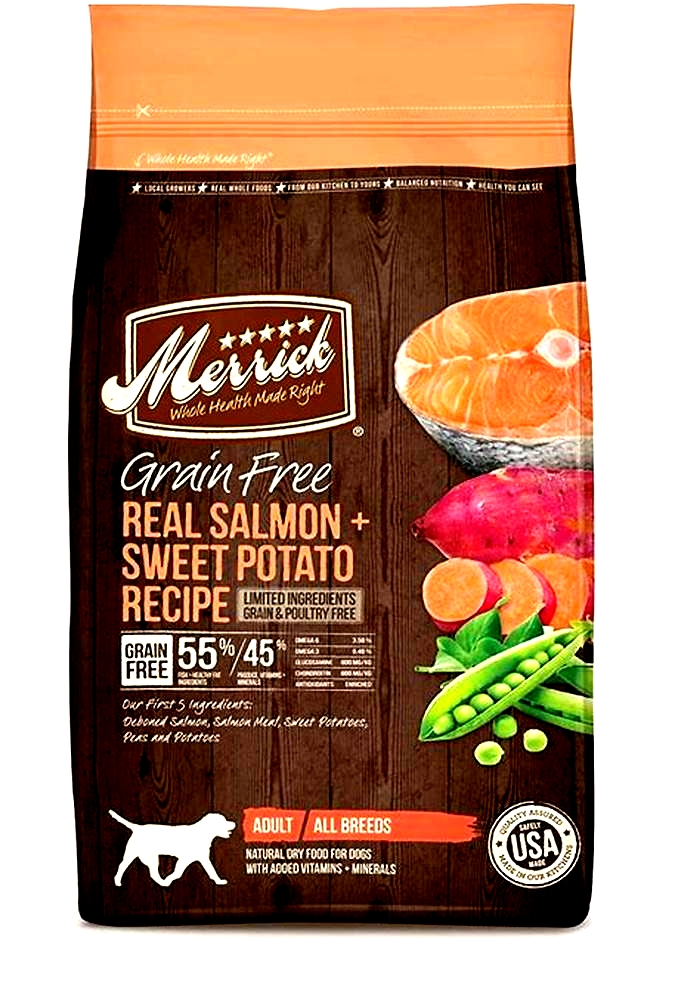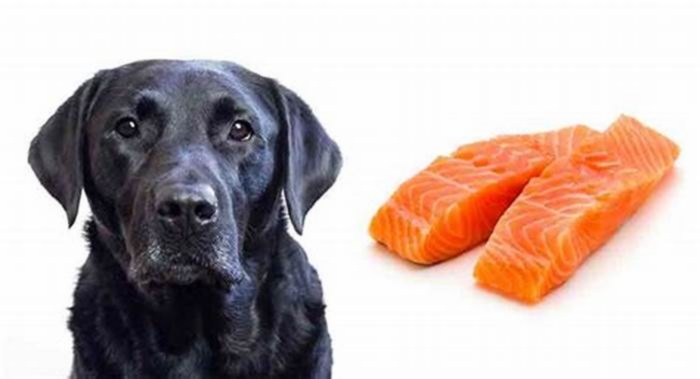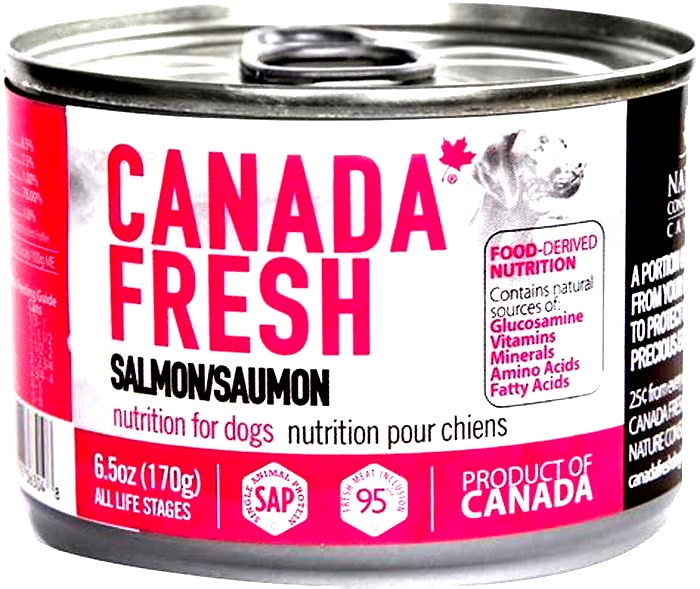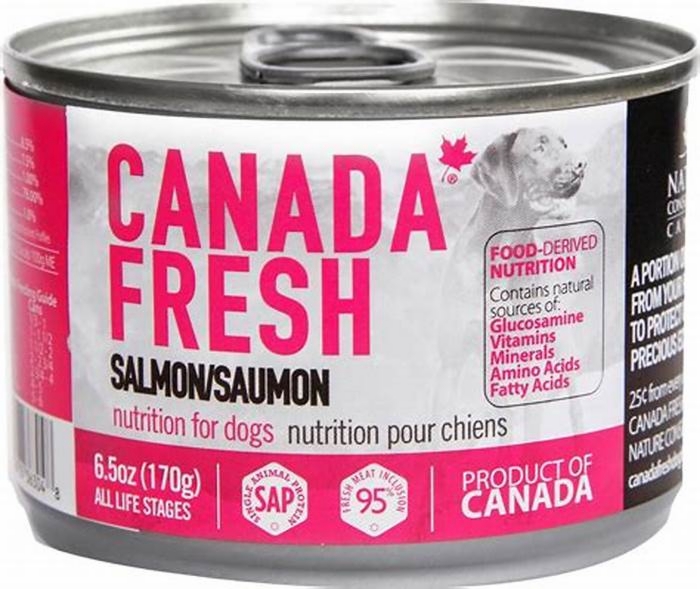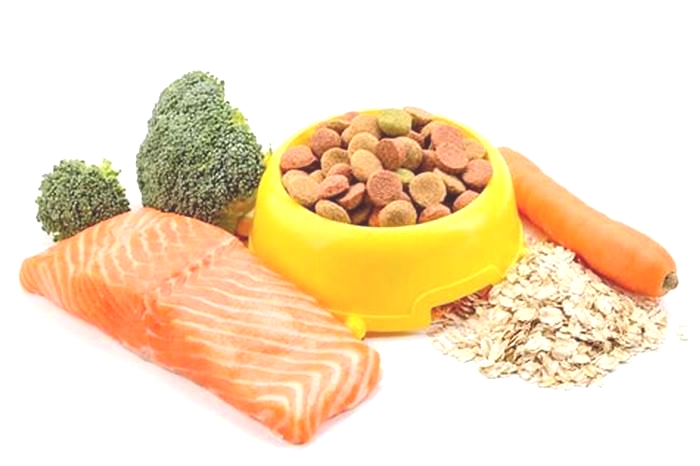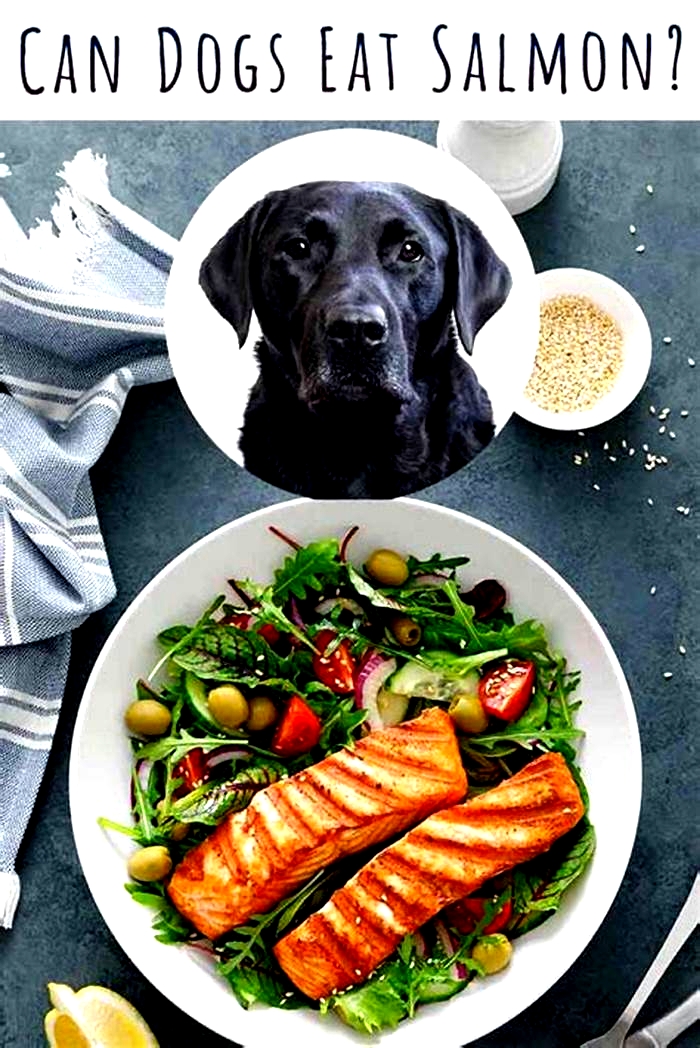is salmon dog food bad for dogs

Can Dogs Eat Salmon?
NOTE: Always check with your veterinarian first before giving your dog any new foods, especially people foods. What might be OK for one dog might not be good for your dog, depending on multiple factors, such as their age, health history, health conditions, and diet. Dogs on prescription diets should not be fed any food or treats outside the diet.
Does your pooch have a penchant for fish? Many dogs like the taste and smell of seafood, but its important to understand the benefitsand possible risksanytime you consider adding a new ingredient to their diet.
Thankfully, when it comes to cooked salmon, your dog is safe. Salmon is a popular ingredient in many types of commercial dog food and is also OK for your dog to eat as a food topper or tasty treat. As with any new food, youll want to be careful not to feed your dog too much salmon to start, and be sure to watch out for any extra ingredients that might be included in typical human recipes (like butter or seasonings) that can be dangerous for dogs to eat.
Keep reading to find out how to safely prepare salmon for dogs, and when youll want to ask your vet for advice.
Is Salmon Good for Dogs?
Salmon can be a great addition to your dogs diet, and many high-quality dog food brands use salmon as a protein source. Unlike some seafood, such as tuna, the U.S. Food and Drug Administration (FDA) reportsthat salmon contains very low levels of mercury.
So, adding a little cooked, plain salmon to your dogs bowl can be a great way to give them an extra boost of flavor and nutrition. A few nutritional benefits of feeding your dog salmon include:
- Omega-3 fatty acids: Salmon is a great source of omega-3s, which are good for dogs skin and coat health, and can even improve mobility for dogs with joint issues or other inflammatory diseases.
- Protein: In addition to being an excellent source of healthy fats, salmon is also a good source of protein, which helps your pooch build and repair muscle tissue. There are many high-quality dog foods that use salmon as a main source of protein, which can be a great option for dogs who have allergies to other proteins like chicken, beef, or lamb.
- Vitamins and minerals: Salmon is also a good source of B vitamins. One important nutrient thats critical for keeping your dogs brain and nervous system healthy is vitamin B12, and salmon is rich in B12.
Just be sure to check with your vet before making any major changes to your dogs diet, especially if your dog has any health conditions or sensitivities.
Can Dogs Eat Salmon Raw?
Even with all the health benefits of salmon for dogs, pet parents should be cautious about feeding their pooch raw or undercooked salmon. Feeding your dog uncooked salmon can make them very sick. Raw and undercooked salmon can contain a parasite known to cause salmon poisoning disease, which can be fatal for dogs if left untreated. So sorry, sushi-sniffing hounds! Baked, broiled, grilled, and boiled fish are all much safer options for dogs to eat.
If your dog does get ahold of raw salmon or raw fish of any kind, give your vet a call so they can help you determine next steps.
Can Dogs Eat Salmon Skin?
If youve baked a nice salmon dinner but dont care much for the skin, its fine to share that leftover bite with your pooch. Salmon skin is safe for dogs to eat. Just be sure the fish has been thoroughly cooked and isnt seasoned with spices or ingredients that are toxic to dogs (like onions, butter, or garlic).
In fact, that scraping of salmon skin can be a great way to give Fido extra nutrients rather than throwing it into the compost if its not to your taste. Salmon skin actually contains even more of the healthy omega-3 fatty acids than the rest of the fish. So if youre not a fan of the skin, topping off Fidos food dish with a small amount of your leftovers can be a win-win for you both. Just remember to feed your dog salmon skin only in small amounts.
How to Safely Feed Salmon to Your Dog
Salmon is a safe snack for dogs, but that doesnt mean you should grill them an entire fish for dinner tonight! Giving salmon as a treat is a good place to start, and you can gradually increase amounts to let your dogs body adjust to the new food. This can help them avoid adverse effects like an upset stomach or diarrhea, which can happen when your dogs usual menu changes.
Any salmon given to your dog should be fresh, cooked, and free from bones, which pose a choking hazard. Avoid any seasonings or extra ingredients, as many common ingredients are not safe for dogs to consume.
Canned salmon is also OK for dogs to eat, but youll want to watch the sodium. While canned salmon in water is a better choice for dogs than salmon packed in oil, rinse it thoroughly to remove any excess salt or oil from the canning process before adding it to your dogs dish.
How Much Salmon Can Dogs Eat?
Feeding small amounts of fresh, cooked, boneless salmon as an occasional treat is considered safeand even healthyfor dogs. But as with any new food, start slow! Its always best to err on the side of caution when it comes to your dogs health.
Here are some general guidelines for how much salmon is safe for dogs to eat, based on their weight:
- Extra-small dog (220 pounds): 12 ounces of fresh, cooked, boneless salmon per week
- Small dog (2130 pounds): 23 ounces of fresh, cooked, boneless salmon per week
- Medium dogs (3150 pounds): 34 ounces of fresh, cooked, boneless salmon per week
- Large dogs (5190 pounds): 46 ounces of fresh, cooked, boneless salmon per week
- Extra-large dogs (over 90 pounds): 68 ounces of fresh, cooked, boneless salmon per week
Note that these are just general guidelines. Its always best to check with your vet before making major changes to your furry friends food bowl.And remember: Raw seafood can contain harmful bacteria and/or parasites that can cause illness in dogs.
Featured Image: iStock/O_Lypa
Can Dogs Eat Salmon?
Is it safe to feed your salmon? The short answer is yes.
Salmon is a great source of omega-3 fatty acids, which support the immune system, may decrease inflammation, and can keep your dogs coat looking shiny and healthy. Along with some other types of fish, salmon is also a good protein source. In fact, salmon is a common ingredient in high-quality dog foods. If your dog is allergic to more common sources of protein like chicken, salmon may be a good alternative.
How Should I Prepare Salmon for My Dog?
Do not ever give your dog raw or undercooked salmon. It can contain the Neorickettsia helminthoeca parasite, which causes salmon poisoning disease. This disease can be fatal. In addition, raw salmon contains lots of small bones, which are brittle and can choke your dog or lodge in their stomach or intestines.
However, well-cooked, boneless salmon is definitely on the list of people food approved for dogs. Choose fresh, boneless fillets, since theyre less likely to harbor small bones. But be sure to check for tiny bones anyway before cooking. Then poach, grill, roast, steam, or bake the salmon with no oil, salt, pepper, or other seasonings, such as garlic or onions.
As with any food, portion control is important. Serve your dog an appropriate portion size, and limit salmon intake to once a week or less. You may even feed your dog canned salmon, although its best to choose one packed with water.
So, the next time youre putting a fresh piece of salmon on the grill or in the oven, set a small piece aside to cook for your dog. Its good for them, and theyll love it. And if you really want to give your dog a special treat, try this homemade vet-approved mini omelette, made with sliced, cooked salmon!
5 Best Salmon Dog Foods (2024)
How to Choose the Best Salmon Dog Food
Salmon is a powerhouse protein that dogs just love. There are many reasons to consider making the switch to a food that lists salmon as one of its protein sources. It is an extremely healthy meat filled with omega 3 and 6 fatty acids, critical nutrients to nourish skin and coat and provide dogs with the energy they need to maintain an active lifestyle.
Joint health is also supported by the oils found in this flavorful fish. With so many benefits to be gained from a switch to a salmon-based diet, it is not hard to see why dog foods with salmon are among the best diets around!
Salmon is also believed to act as a powerful brain booster, encouraging cognitive function through its healthy fats such as DHA and APA. This is particularly helpful for young puppies undergoing sensitive periods of growth as well as for senior dogs experiencing some brain impairment.
Many types of fish contain ample servings of amino acids, and salmon is no exception. These vital nutrients assist with such important things as ensuring proper hormone function and building cartilage.
Salmon is also extremely rich in many important vitamins and minerals required for health and wellness both in people and in dogs. These include magnesium, potassium, zinc, selenium, vitamin D, and vitamin B12.
But perhaps the biggest selling point when it comes to dogs is salmons potent flavor. Dogs love it canned, grilled on the barbecue, oven-baked, or as part of their daily kibble quota.
When selecting the best salmon food for a dog, it is important to carefully read labels to understand what the diet contains. Whole salmon is the best choice for dogs, and this is particularly important for dogs suffering from allergies or skin and stomach sensitivities as any additional ingredients may incur further health problems.
When it comes to choosing the best salmon dog food, one of the biggest considerations is whether you opt for wild-caught salmon or farm-raised salmon. Wild-caught salmon is considered to be the most natural and has fewer ingredients added to it, making it a healthier choice for your pup.
Additionally, wild-caught salmon is typically sourced from sustainable fisheries and contains a higher level of omega-3 fatty acids than farm-raised salmon. On the other hand, farm-raised salmon is often raised in large tanks with more added ingredients and a lower omega-3 content.
Choosing the Correct Calorie Count for Dog Foods with Salmon
Determining the correct amount of the best salmon food to feed a dog can be difficult. The best course of action is to consult the bag of food and follow the suggested serving size as a basic guideline. This can be adjusted with the dogs weight, appetite, and activity serving to help with ascertaining the proper portion size.
Care should be taken not to overfeed the dog as weight gain can occur rapidly. Measure all food and monitor intake to prevent the dog from becoming overweight.
Dietary Requirements for Dog Foods with Salmon
Any salmon-based diet that is ideal for dogs to enjoy should contain salmon or salmon meal as its first ingredient. Whole salmon is the best choice, but meat meals offer dogs excellent quality nutrition as well. By-products are not often seen in salmon; however, should a label list them, they should be avoided.
Should a diet contain plant-based proteins such as corn, wheat, or soy, they are best left on the shelf. These are common allergens for many dogs and can neutralize some of the positive effects of salmon. Diets containing these ingredients cannot be considered among the best foods with salmon for dogs.
Carbohydrates included in a salmon-based diet should be easy for dogs to digest. Unless a dog has expressed sensitivity to grains, they may freely eat a grain-inclusive or grain-free formula without any ill effects.
The primary importance of any food included in a salmon-based diet is its fiber and antioxidant content. These items promote good digestion and a strong immune system to protect against disease.
Healthy fats are a vital element in a dogs diet. Salmon contributes a powerhouse punch of this all on its own; however, the addition of such ingredients as chicken fat, salmon, or herring oil provides additional benefits through their omega 3 and 6 fatty acids to encourage healthy skin and coat.
Any salmon-based diet that is optimal for a dogs daily food should contain a minimum of 18 percent protein and 5 percent fat.
Things to Look for in the Best Salmon Dog Food
Here is a basic list of the most important things to look for in premium salmon dog food:
- Whole meat or meat meal proteins heading up the ingredients list
- Prepared without the addition of chemicals, flavorings, fillers, or mystery ingredients
- Enriched with probiotics, digestive enzymes, and helpful supplements
- Meets AAFCO nutritional requirements for a complete and balanced food
- Includes healthy fats such as chicken fat or salmon oil

